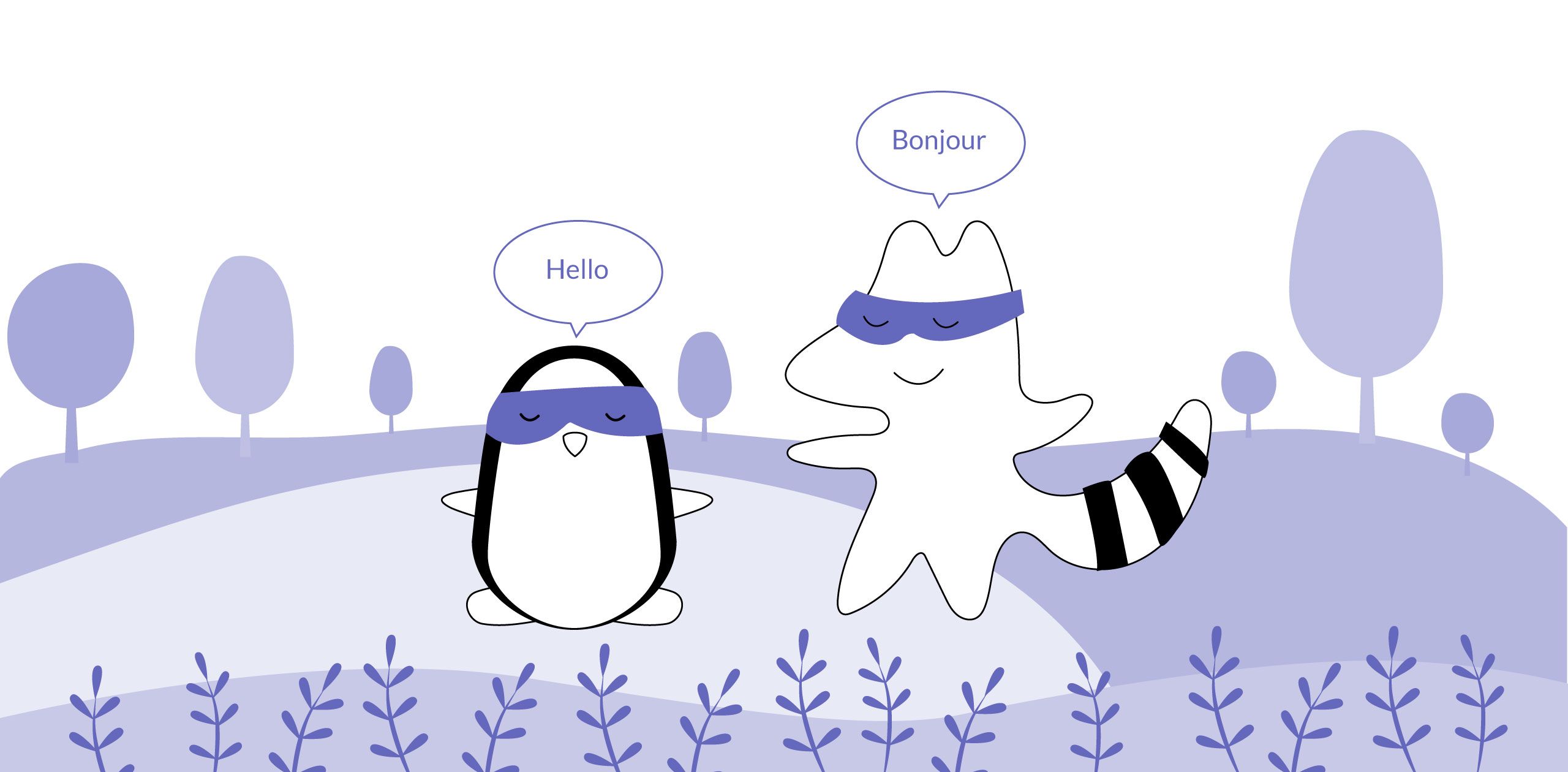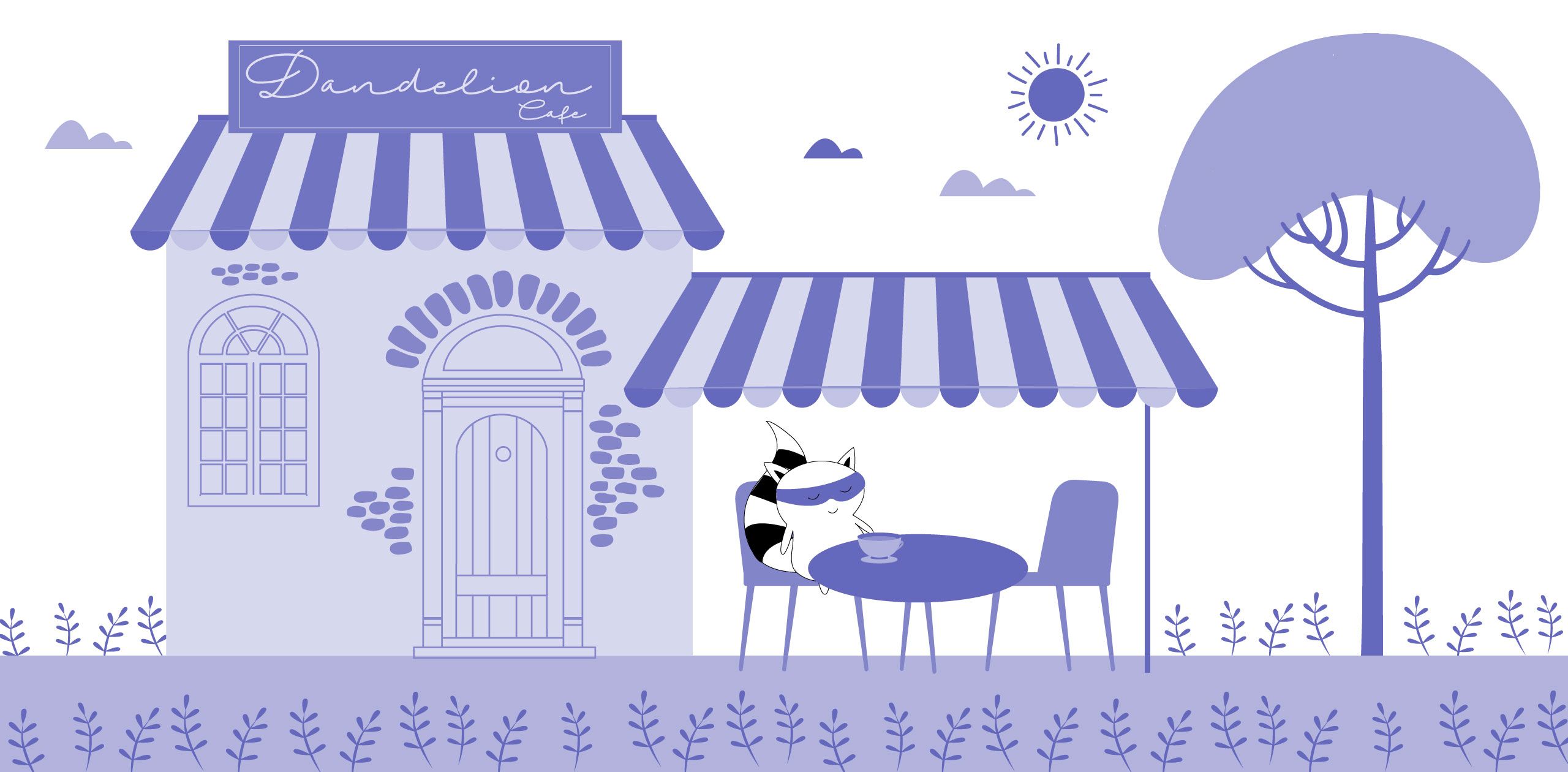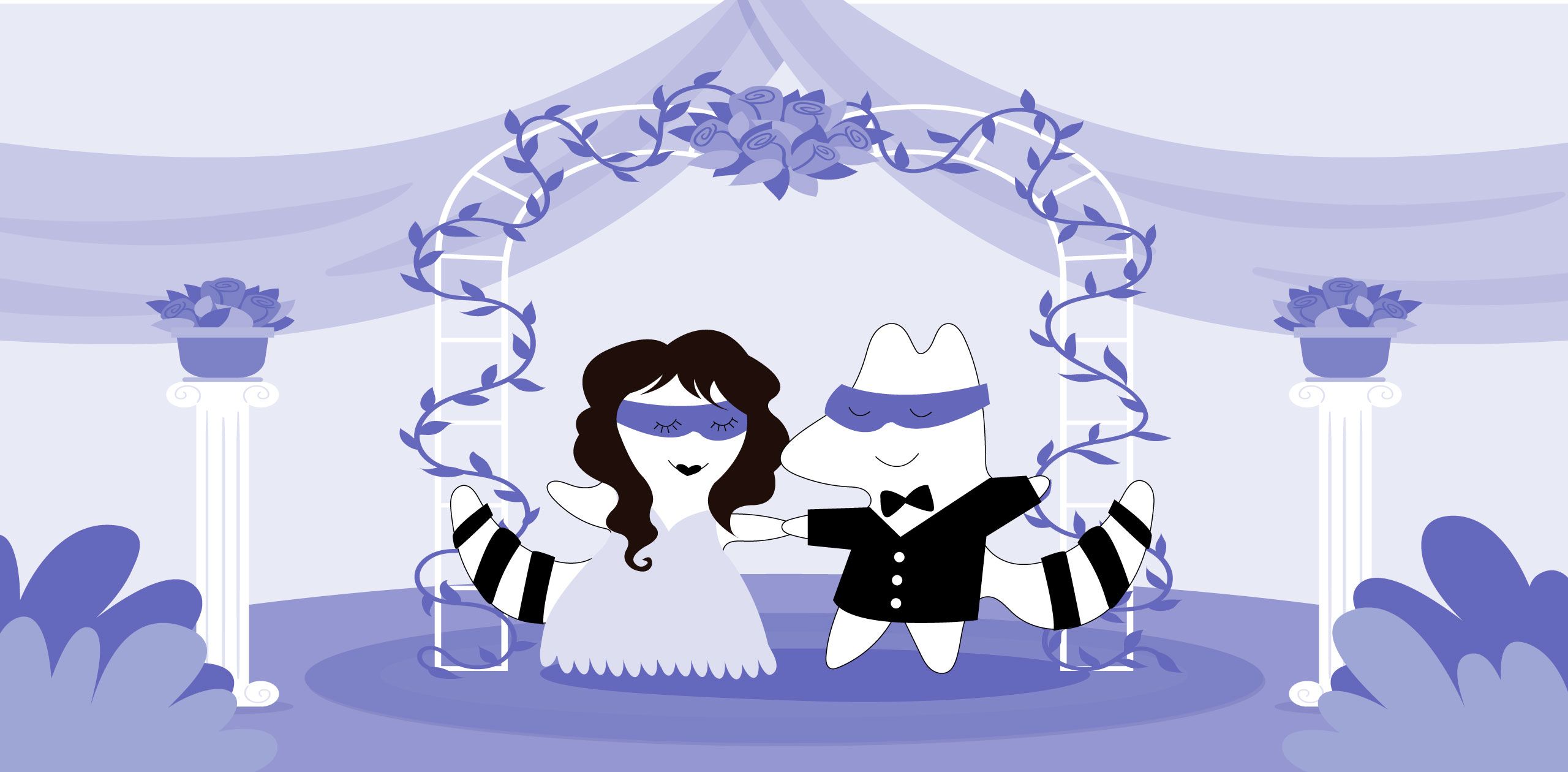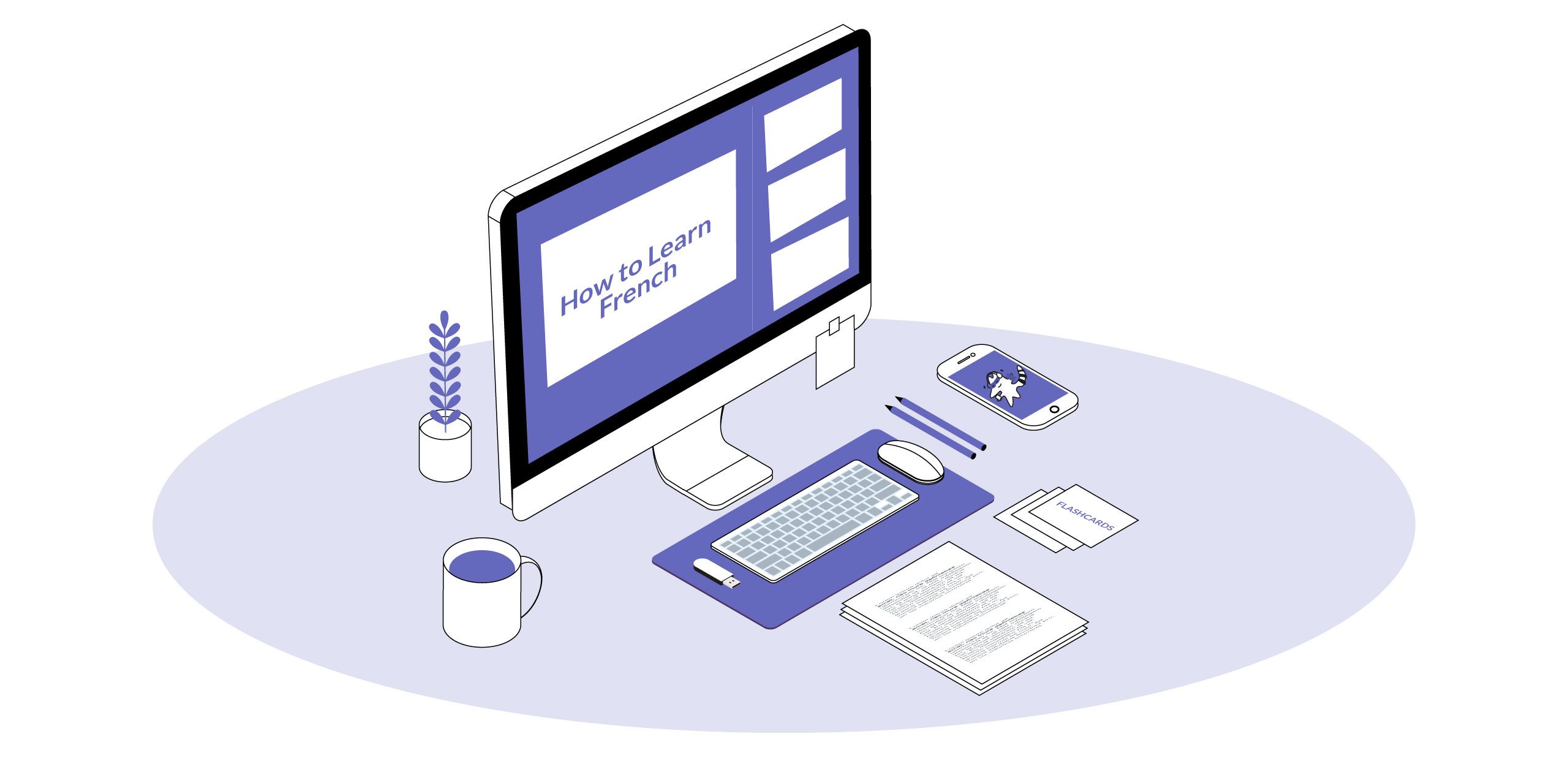
There are many reasons to learn French. Perhaps you want to visit this beautiful country. Maybe you want to know the language of love. Perhaps you’d like to be able to communicate with the 220 million people worldwide who speak it. Or maybe you want to learn it or simply for fun.
Whatever the reason, you have decided to take the first step on your path to knowing French.
Depending on your objective, you now have to choose a way to learn French - and there are many options. Private lessons, conversations with native speakers, flashcards, courses, apps (for example, Langster) - there are many possible ways to learn.
But where to start?
When you’re just a beginner, it may be challenging to determine which way of learning French suits you. Don’t worry, though - we will help you figure it out.
Today, let’s talk about the best methods for learning French and their pros and cons. We’ll cover the best trick for learning a different language using several methods and help you find the best way to learn French for you.
Ready to start? Let’s go.
Learn French with Langster
Which Way of Learning French to Choose in Your Case?
If you want to learn French today, there are dozens of resources available to you. There are apps, courses, flashcards, and textbooks. You can choose something that suits your needs and budget. But how do you make the right choice? How to figure out which method exactly can help you in your unique situation?
Making a decision can be hard. We can make it easier by outlining the main pros and cons of the most popular methods to learn a foreign language.
Group Courses
Both group lessons and private lessons allow you to work together with a teacher. Group classes are a good place to start if you don’t like studying by yourself. They can also significantly improve the learning experience by allowing you to feel like you are in a school class - whether it's an online French course or an in-person class.
Pros:
- You’re learning not just from your own mistakes. During group classes, you are always a part of a group, and chances are, none of you are perfect. This means that if your classmate makes a mistake, the teacher will correct them - and you will be able to learn from this mistake, too.
- You’re socializing. You are able to make friends and talk to people from outside your social circle. This might motivate you to work harder, or at least keep showing up.
- The class is structured. You have a textbook, an exercise book, and a lot of homework. If you like having lots of structure when learning something, then group courses are perfect for you.
- Active participation during a group lesson can bring excellent results for learning a new language. There’s even scientific evidence for that.
Cons:
- Less focus on you. Since there are several people in the group, it may be challenging for the teacher to find a personalized approach to everyone.
- Less speaking French. During group lessons, the focus is on showing you the structure of the language, which includes grammar, vocabulary, and context. However, you may not have enough time to practice speaking.
Private Lessons
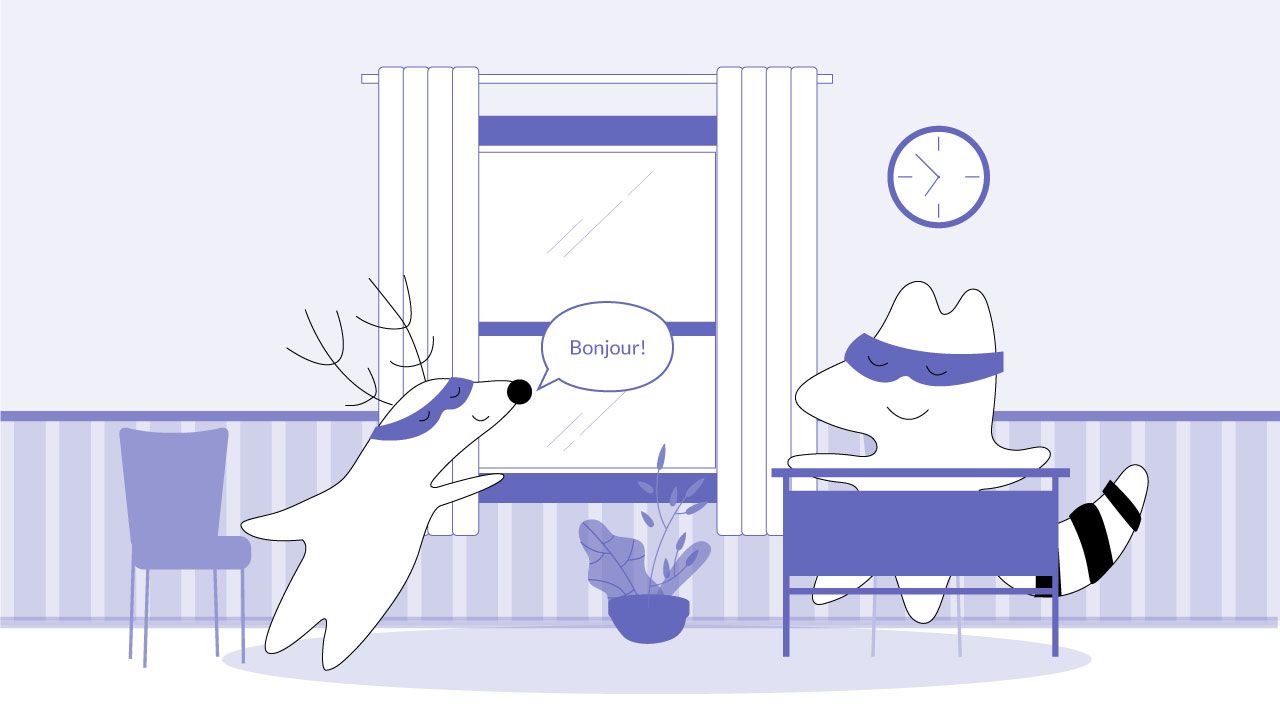
Many people who want to learn French decide to give private lessons a try. This is usually super beneficial for them. 1-on-1 tutoring usually yields the fastest results, but it also can hit your wallet pretty hard.
Pros:
- A lot of focus on you. A good tutor knows what you need to improve on and which mistakes you make often. Together, you can cover your favorite topics. This can make your French-learning journey quick and pleasant (especially when compared to other language learning methods).
- Lots of speaking practice. During lessons with the tutor, you will mostly speak around 70% of the time. If your language-learning goal is to speak with locals, this is the best option, especially considering that a good tutor should have a genuine French accent. For the best results, you can look for a native French speaker who works as a teacher.
- They will keep you on track. When you have lessons with the tutor, it will be harder for you to give up or miss a class. A private teacher will help you stay consistent and organized, and get you on the fast track to speaking French.
Cons:
- Price. Private tutors can be super expensive, and this is why not all beginning language learners go this route. On the other hand, you can find some good deals if you look online. However, make sure to interview private teachers before you hire them. This way, you can avoid scams and find a teacher you really like.
Apps
Apps are an excellent tool for learning a language by yourself. They’re usually free or cheap, they offer a lot of exercises and examples, and they can help you create a learning system effortlessly.
Pros:
- Price. As we have mentioned, apps usually don’t cost a lot. If you can’t afford to sign up for group courses or private lessons, this might be your best shot.
- Simplicity. When you’re just beginning to learn a new language, the app will start with giving you simple texts and exercises, increasing the difficulty as you learn more.
- Learning grammar in practice. No more challenging grammar exercises. With apps, you will learn grammar via play, which is a huge benefit for many language learners.
Cons:
- Lack of speaking. Apps won’t usually allow you to practice speaking much. Instead, they will improve your listening skills, vocabulary, and grammar.
- Lack of context. Most sentences you will see in a regular language-learning app will sound like, “Tiger ate some soup.” As you might have already figured out, this won’t really help you learn how to talk to native speakers.
- Of course, some apps might work better than others. For example, Langster will give a possibility to work with grammar, listening, and context at the same time.
Flashcards
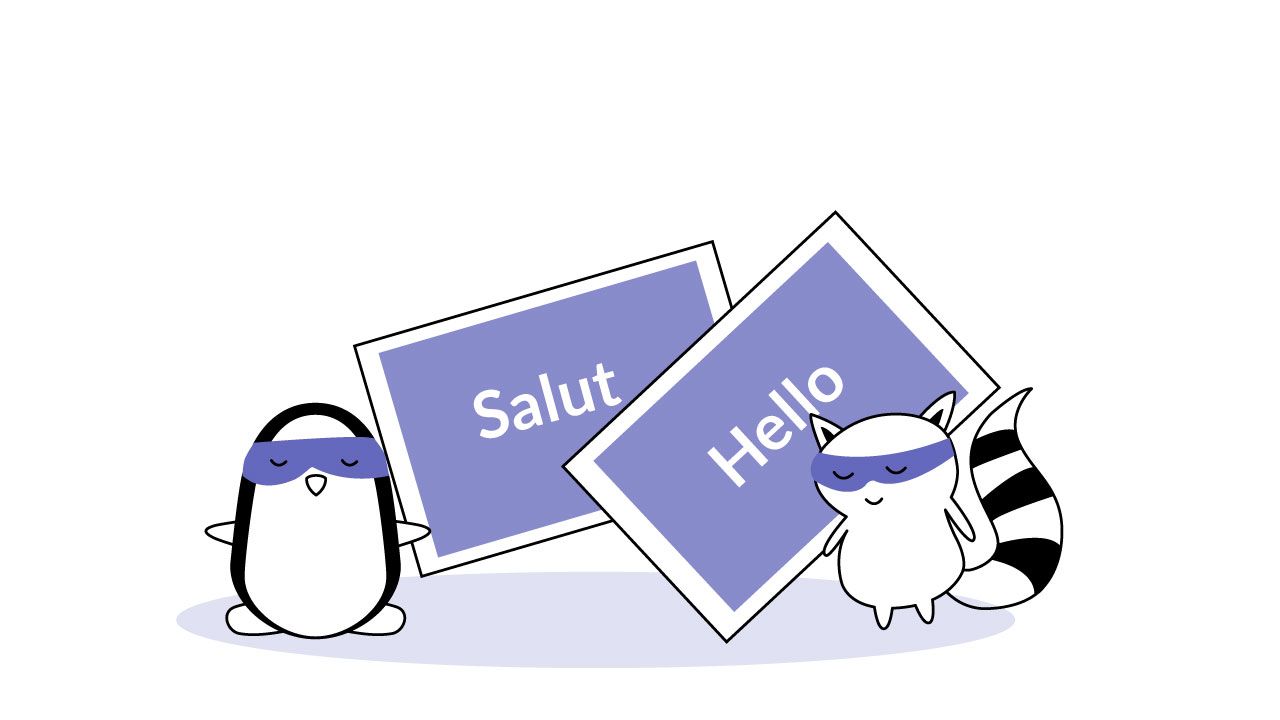
Flashcards work quickly and they often seem to produce excellent results. However, they are not suitable for every situation.
Pros:
- Speed. Flashcards are great for learning single words and their meanings in a short time. They will help you practice and memorize vocabulary, verb forms, and anything else you need to remember.
- Everyone can make them. You can use paper, your phone, or your PC to make the flashcards you need. Just google the French word you need to learn, check the meaning, and write it down.
- You can use them alone or together with a partner. Whether you learn faster by yourself or when socializing, flashcards can come in handy. They can be very exciting, too - it’s easy to create games with them, which can simplify the process a lot.
- They are great if you have trouble remembering French vocabulary or dealing with written French. Just a few sessions with flashcards, and this problem disappears.
Cons:
- Lack of context. With flashcards, you’re simply learning the vocabulary. This means that you may be unable to use them later. They don’t deepen your layer of understanding, so you’re basically learning random words.
- You must be very careful when making them. It’s easy to make a mistake if you don’t know how the word is used, and then learn the wrong meaning.
- They’re for visual learners. Not everyone benefits from visual tools; also, focusing just on this method of learning French alone won’t teach you any grammar or pronunciation.
Online Materials
There are a lot of online materials for learning French out there, and they can be a big help sometimes. There are videos, audio recordings, social media posts, websites full of explained rules, and interesting expressions. Some of them are excellent, while the others are simply a mess.
Pros:
- Price. Most of those are free, so you can use them even if the budget is tight.
- They’re really fun. Youtube and TikTok videos make the French language seem easy. You can learn new words and grammar rules quickly and with pleasure.
- They’re flexible. At any moment in your life when you have some spare time, you can take out your phone, press play, and start learning.
Cons:
- Lack of structure. When learning a language - any language - you need a plan. This way, you know what you have already done and what you have to cover in the future. When learning online, people rarely structurize the learning process. Because of this, they may lack logic and forget many essential things.
- It’s easy to lose focus. If you spend a lot of time online, you might already know how easy the transition can be from watching French tutorials to looking at cute kittens.
- They don’t give you opportunities to speak French. With online tutorials, you have a one-way communication: the teacher talks, and you listen. There isn’t a way to practice speaking.
Be aware that even though there are many free French learning materials online, not all of them are created equal. Some online tutorials can waste your time and even make you feel lost. If you want to use free materials, make sure to find some reviews or comments suggesting that they actually work.
Language Exchange Groups
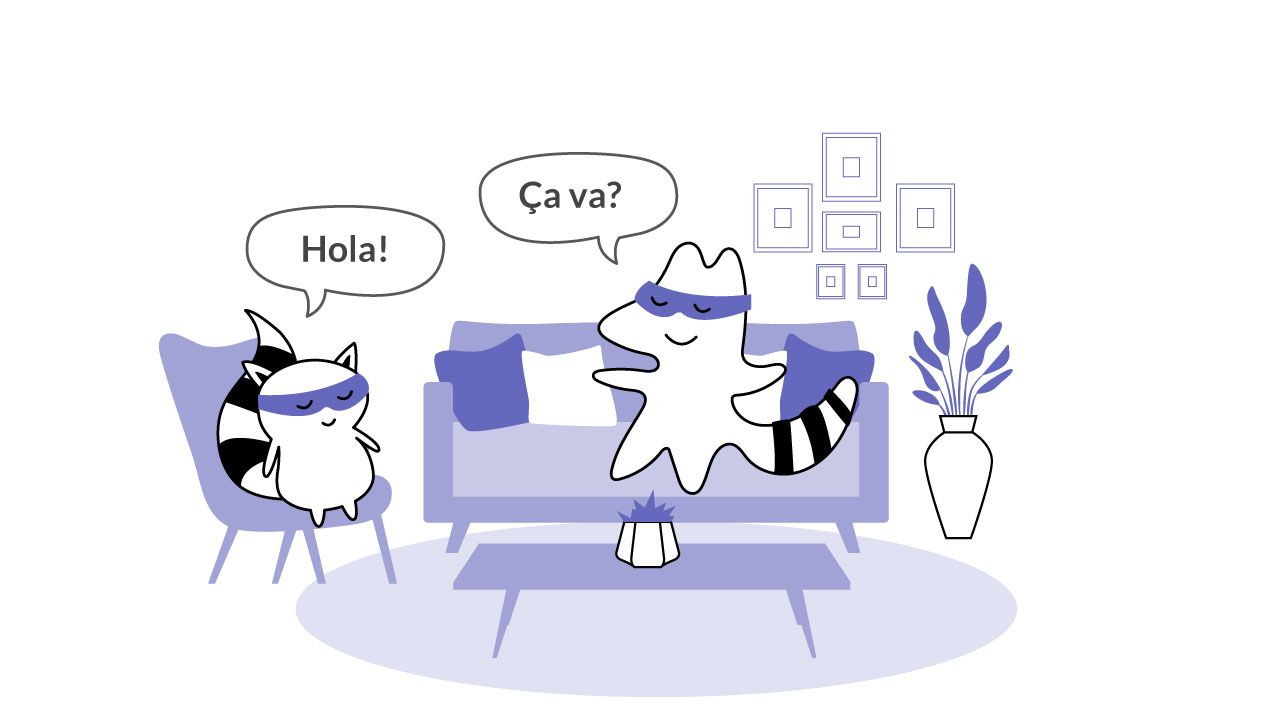
French exchange lessons are pretty popular today, and you surely can find at least one language exchange group in a large city. So, why not give it a try?
Pros:
- Price. They’re free. You don’t have to pay for lessons. You’re just speaking to people who want to learn languages too.
- Great for practicing speaking. You won’t do exercises or use flashcards during language exchange lessons. Instead, you will speak, speak, and speak a little more.
- You socialize. You can make friends and have fun together while learning French at the same time. For many people, this is the best way to learn French, as it can significantly ease the process.
- You hear the natural language. Do you remember your foreign language teacher at school and their super correct pronunciation? You won’t come across something like that during language exchange. Instead, you will hear French native speakers using their native pronunciation and different accents. Remember, spoken language is a lot different than written language.
- You learn more about France. After all, French lessons are not just about the language, they’re also about the culture of the country and nuances you may not notice when learning in class.
Cons:
- You don’t have a qualified teacher. Not everyone was born to teach. Some people just can’t explain why you should pronounce French suffixes in some words but not in others. Moreover, they might not know when to correct you, so mistakes might stay with you for longer.
- A high difficulty level. People who already know some French can really benefit from a language exchange course. It’s a great way to learn more about spoken language. However, if you’re a total beginner, it’s easy to get lost the minute a native speaker starts talking to you.
Movies, TV shows, and Podcasts
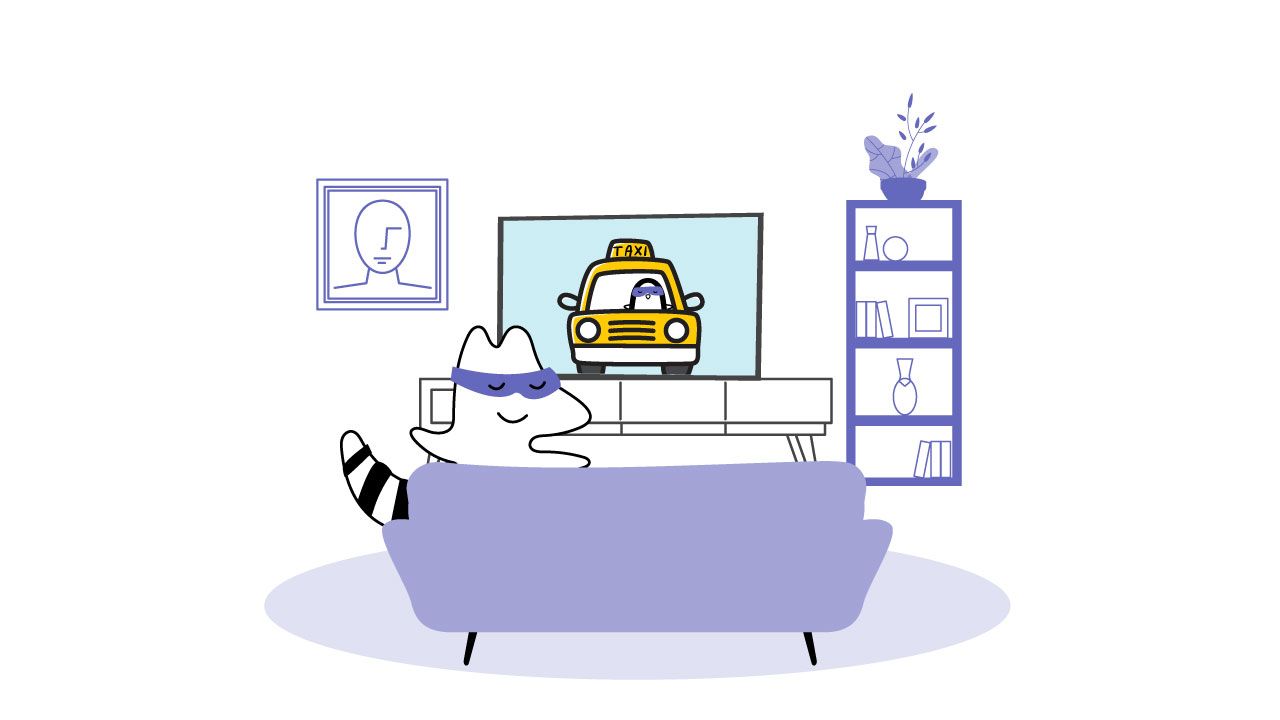
Media in French can be quite enjoyable. For many people, they offer an easy way to learn French naturally. However, the situation is not as simple as it may seem.
Pros:
- You immerse yourself in French. Spoken language becomes simple and easy to understand, even if you don’t know anything about grammar. It’s basically sublime learning - you can’t explain anything, but you know what it means.
- You learn more about French culture. After all, who can tell you more about the French language and etiquette than the French? Moreover, different genres explore different part of French culture and vocabulary - for example, if you watch a medical tv-show, you can learn more about medicine in France (or at least French medical words), and and if you're a fan of comedies, movies can show you what kind of humour the French prefer.
- You hear the language spoken by native speakers, along with their accents, different pronunciations, curse words, expressions, and much more. If you want to learn real French, this is one of your best choices.
- You can use French subtitles if you’re lost. Even if you’re a beginner, learning French can get easier with subtitles as they allow you to listen to native speakers while fully understanding the meaning of their conversations. Also, subtitles are great for getting to know how the French words are written. And if you're a complete beginner, you can start with subltitles in English and move to the French ones later.
Cons:
- More often than not, you’ll need a subscription. Most media services offer a free trial period, but most will ask users for a monthly subscription.
- There’s no speaking when consuming media. If you want to be able to speak to other people, this method won’t help you because you need to practice speaking. However, if your main goal is to watch a French musical or listen to Edith Piaf without translation, then this may not matter to you.
- It takes a lot of time. You won’t learn French just from watching the whole Taxi franchise. Speaking French like a native requires time, and without learning some basics, you won’t be able to speed up the process.
- You may not understand what’s going on grammatically. For some people, the structure and rules are the key to language learning, and when you don’t understand why a person said “mon amie” instead of “ma amie,” it can lead you to making grammatical mistakes while speaking.
What to Remember When Choosing the Method
When you’re deciding whether you should download an app, buy some flashcards, or pay for private lessons, remember that all people are different, and what worked for one will not suit the other. Solo learning is not for everyone.
Look for methods that suit your learning style. Sometimes, you need a teacher to motivate you. A teacher can also explain some complicated grammatical points in plain English. Other times, you need a simple yet effective way to learn vocabulary quickly.
Pro Tip: Mix the Best Ways to Learn French and Find Your Unique Method
So what do you do if you can’t find the best way to learn French? Mix it up, of course. After all, you won’t be able to learn a lot about French culture from flashcards or speed up the learning process when taking group courses.
Instead, find a few ways that work for you and use them together. For example, sign up for a course, watch French movies in your free time, and go to the language exchange meetings to talk to the native French speakers. This will allow you to work both on grammar, listening, and speaking.
Or get some private lessons and use apps to reinforce the material you have learned in class. You can also watch French movies and listen to French music in your free time.
There are many great combinations out there. You just have to find out what will work best in your situation.
Final Thoughts: Find the Best Way to Learn French In Practice
If you’re just starting your language learning journey and wondering how to learn French best, know that the perfect method for learning French doesn’t exist. Depending on your needs and preferences, you will have to mix different learning methods and techniques to achieve the best results.
For example, if you want to speak French better, think about signing up for private lessons and visiting language exchange meetings. On the other hand, if you’re struggling with your listening skills, watch YouTube videos or listen to the audio lessons in a language learning app.
Don’t know where exactly to start? Download the Langster app first. As you listen to a native speaker reading simple stories aloud, you learn useful vocabulary and naturally absorb the grammar rules. Langster also gives you the ability to use different words and constructions in context, thanks to various exercises.
The key here is to try different types of language learning methods and figure out what works for you in practice. Don’t hesitate to give up things you don’t like. After all, learning French should be exciting, not boring.







